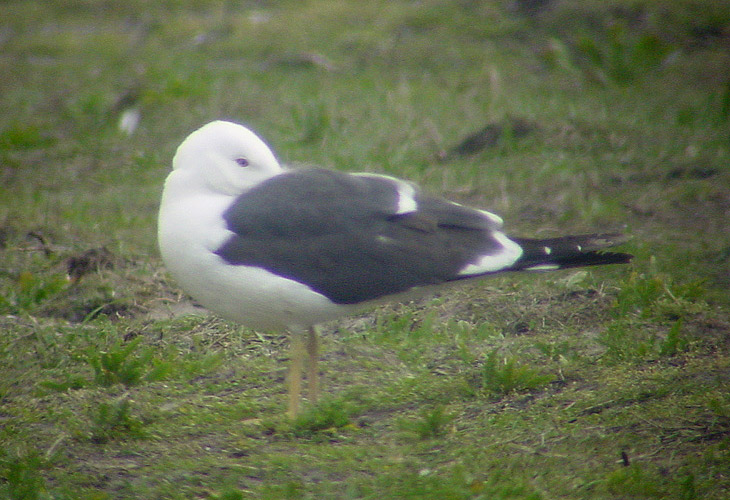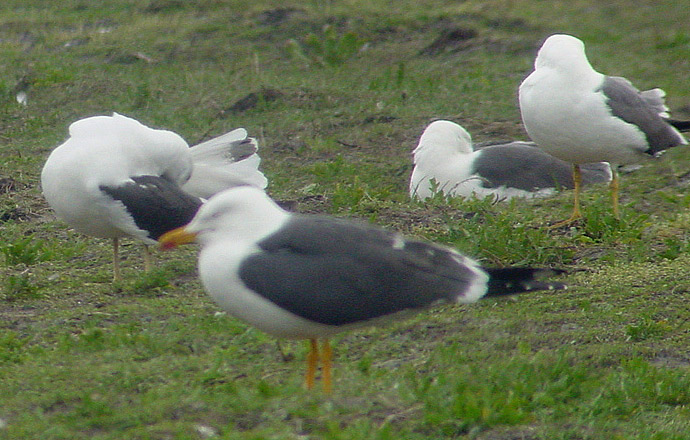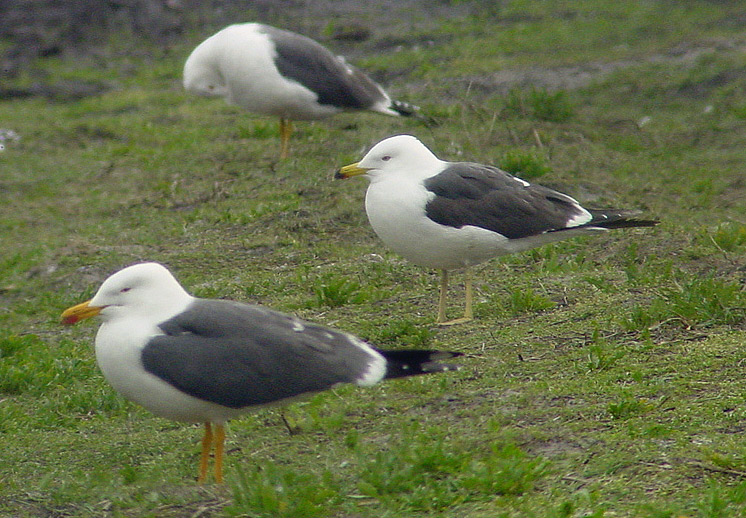 Lesser Black-backed Gull (graellsii & intermedius)
Lesser Black-backed Gull (graellsii & intermedius)
(last update: May 17 2015)
lbbg 1cy May
lbbg 1cy June
lbbg 1cy July
lbbg 1cy August
lbbg 1cy September
lbbg 1cy October
lbbg 1cy November
lbbg 1cy December
lbbg 2cy January
lbbg 2cy February
lbbg 2cy Mar-April
lbbg 2cy May
lbbg 2cy June
lbbg 2cy July
lbbg 2cy August
lbbg 2cy September
lbbg 2cy October
lbbg 2cy Nov - Dec
lbbg 3cy Jan-April
lbbg 3cy May
lbbg 3cy June
lbbg 3cy July
lbbg 3cy August
lbbg 3cy September
lbbg 3cy October
lbbg 3cy Nov - Dec
lbbg sub-ad Jan-April
lbbg sub-ad May
lbbg sub-ad June
lbbg sub-ad July
lbbg sub-ad Aug
lbbg sub-ad Sept
lbbg sub-ad Oct
lbbg sub-ad Nov
lbbg sub-ad Dec
lbbg adult January
lbbg adult February
lbbg adult March
lbbg adult April
lbbg adult May
lbbg adult June
lbbg adult July
lbbg adult August
lbbg adult September
lbbg adult October
lbbg adult Nov - Dec
LBBG 3cy, April 19 2003, Maasvlakte, the Netherlands.

In most 3cy LBBG, the moult strategy follows a standard sequence: mantle and scapulars form a grey saddle on the back when birds return in spring. Most April 3cy Lesser Black-backed Gulls still have most wing-coverts barred. Normally, the first coverts to be moulted are the median coverts.
This individual follows a complete different moult schedule and appears remarkable adult-like by April. Most upper-parts are replaced for plain grey feathers, the older feathers showing a brown hue and wear at the tips. The rectrices have been replaced for plain white adult-like tail-feathers, except the old R5, still showing a broad black band. A complete white tail is rare in 3cy LBBG, but occurs and can be found in spring in any large group of immatures. The primaries have been replaced as well at the wintering grounds, with the inner primaries moulted to fresh third generation feathers, showing small white tips in the primaries P6 and P7. The outermost primaries P8-P10 are still second generation, P10 lacking a mirror and the tips worn. Median coverts #1-3 are brown and have worn tips, tertial #1 is brown as well, with the tip completely gone.
Note the colour of the bare parts, with much black on the bill, almost completely obscuring the red spot, the speckled iris and the pale lemon yellow legs. The shade of grey on the upper-parts is not obvious different from local LBBG in the colony.

